By Luann Jennings
During August 2017, Creative Waco is hosting a temporary “pop-up gallery,” Waco 52, at 712 Austin Avenue (two doors up from the Hippodrome). Waco 52 had a blockbuster opening weekend, with around 1500 people stopping by between Thursday evening and Saturday afternoon.
If you weren’t one of them, I hope it’s not because you feel uncomfortable going to an art gallery. Here are a few thoughts that might make a new arts experience easier, whether in a gallery, theatre, concert hall or elsewhere.
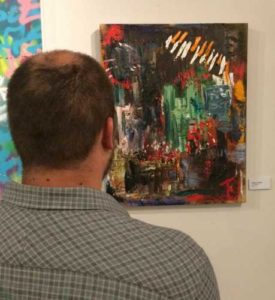
Photo: Austin Meek looks at “Sleep Painting: Bach,” by Travis Tarver, at the Waco 52 exhibition.
It’s okay to like some things better than others. We’re all constructed differently, and we all have different tastes and experiences. Our job as viewers, listeners, and audience members isn’t to judge how “good” the work of art is – instead, focus on your experience and what’s coming out of it. I’ve equally enjoyed Broadway plays and high school plays, not because they were the same in objective quality, but because each one provided me with a different and valuable experience.
You’ll get more out of any work of art if you take some time to process it. This is true whether you’re standing in front of a painting or contemplating something you read or listened to or saw in a theatre. What comes through strongly? What else is there that unfolds more slowly? What does the piece make you think of or remember? What do you feel? Does it make you want to take any sort of action? You don’t have to deeply consider every piece of art you run across; but if you make a habit of really thinking or talking about works that attract or move you, you will build the “muscle” of appreciation and will get more and more out of each arts experience.
Experiencing art is always more fun with a friend. One of the main reasons people report for not going to arts events is that they don’t have anyone to go with. If you have a partner who isn’t interested, which of your friends might be up for a new experience? Who could have a good conversation with you about it afterwards? What else could you do that would enrich the experience even more? Dinner beforehand or a drink in a club with live music afterward?
Learning about an art form will help you understand it. When I met my husband Chuck, a jazz guitarist, I knew nothing about jazz. Sometimes when I went with him to a jazz club it sounded to me like each musician was playing a different song. But as I learned about the history of jazz, and what jazz musicians are doing as they improvise, I came to appreciate it. I don’t tune in to the jazz station when I get in the car, but I can listen to jazz today and enjoy it – and, more importantly, it’s caused me to hear all music differently.
Learning about artists will help you understand their work. Every artist is showing you the world as she sees it – and by looking through her eyes, you expand your own vision. If you like one piece an artist created, check out others. What ideas, colors, sounds, shapes, or images recur? What do the artist and others say about her work, and is that the same as what you see? What in the artist’s personal story is reflected in her work? What is it about this artist’s vision of the world that appeals to you or stretches you?
You won’t be the only “beginner” in the room. Come to a new arts experience with an adventurous spirit. There’s a reason why “play” is what we do with a musical instrument or in the theatre. It’s supposed to be fun! As you would in any social situation, watch what others do, and do the same thing. Ask questions. Artists love the curiosity of people who are new to what we do. If you’re not sure what’s available to you, do some research. Check Creative Waco’s Calendars page to find places to get more information. Also visit our Creative Directory and click through to the websites of organizations and artists that sound interesting. Many have email lists you can join or Facebook pages you can follow. Don’t assume that you can’t afford the arts. Many events are free, and some organizations have free or discounted admission on particular days, or for volunteers.
If you’d like to learn more about the arts, I’ll be teaching a class this fall on “The Arts in Our Community” through Baylor’s Continuing Education program. We’ll spend four class sessions learning about visual art, music, dance, and theatre, and we’ll get to hear from artists in those areas about what they do. We’ll visit a museum and attend a play and concert together, and we’ll have plenty of time to talk about them afterward.
The Waco 52 Pop-Up Gallery will also be holding some educational events. Follow Creative Waco on Facebook to see announcements, or check the calendar on our website.
The gallery is open from 10am-6pm Monday through Saturday, and some evenings for special events, until September 2. In addition to the exhibition, we have a retail shop where you can purchase prints, postcards, jewelry, ceramics, CDs, books, and other products created by local artists. Stop by with your laptop or a book and work or relax with a Luna Juice, cup of tea or Pinewood Roasters coffee.
If you have any questions or suggestions, ask for a Creative Waco staff member while you’re at the gallery, or write us at [email protected]. We’d love to talk with you!
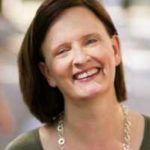 Luann Jennings is an arts educator and advocate who works with Creative Waco (our arts agency) and other local and national arts organizations. She worked as a theatre director in Atlanta for a dozen years before moving to New York City, where she enjoyed experiencing, learning about, and teaching others about all kinds of art forms. Chuck and Luann moved to Waco last summer, and they live at the Good Neighbor Settlement house in Sanger Heights.
Luann Jennings is an arts educator and advocate who works with Creative Waco (our arts agency) and other local and national arts organizations. She worked as a theatre director in Atlanta for a dozen years before moving to New York City, where she enjoyed experiencing, learning about, and teaching others about all kinds of art forms. Chuck and Luann moved to Waco last summer, and they live at the Good Neighbor Settlement house in Sanger Heights.
By Dawn Broadwater
Working for Skillpoint Alliance as Waco Program Coordinator has been both a challenge and a life changing learning experience for me. In January 2017, Mallory Herridge, Waco Program Director and I faced some daunting tasks: We needed to find a qualified HVAC/Construction Core Instructor and then test and interview potential candidates. Doing so helped us resolve some personal stereotypes that only men can be successful in the construction trades! We put together a diverse class of both men and women who are learning how to be HVAC Technicians. By diverse, I mean all ages, races and backgrounds.
Prior to stepping up to the challenge of coordinating our first HVAC/Core Construction class, the only ‘Tools of the Trade’ we were experts at purchasing were mascara, eye shadow and lipstick. Fast forward two months and we can shop for tools and specialty supplies with the best of them! Our first class project was completed at Maker’s Edge, which is a makerspace and DIY prototyping studio here in Waco. The class made a chair and constructed a stand to hold an air conditioner unit. Two of our students were so dedicated to their success that they donated a small refrigerator and an air conditioning unit for extra learning.
Our Instructor, Mr. Ric Staton, has over 20 years’ experience in the HVAC field. He has owned and operated an HVAC business in Bastrop and taught HVAC at National Institute of Technology in Austin. He brings humor, integrity and a vast portfolio of knowledge to our program. Next on our HVAC Wish list is a ‘teaching trailer’ to hold our supplies and also serve as a workstation. Ideally the trailer should be covered and 8 x 8 through 8 x 24. The students would be able to practice hands on skills and apply what they learn in class. Another item on our class ‘wish list’ is a used A/C Condenser and Furnace Unit. To date, we are grateful that this wish has been fulfilled by Capstone Mechanical.
Skillpoint Alliance has been providing ‘Rapid Workforce Development’ training to participants in Austin since 1994. They expanded to Waco in 2015 with a few pilot classes and are now finding a permanent home here in Waco. Their office and classrooms are located at the Barron’s Branch Apartments on Colcord. Skillpoint is attempting to help residents who have a desire to obtain a certification in such fields as HVAC/Core Construction, Medication Aide and Certified Nurse’s Aide. Mallory, who started as Director in 2016, states “although Skillpoint has only been in Waco a short time, this ‘Rapid Workforce’ model has already been identified as an integral piece of the puzzle when it comes to increasing the financial security of our citizens.”
The Skillpoint Alliance Heating, Ventilation and Air Conditioning training is an eight week specialty course that prepares participants for work as an HVAC Apprentice. Students spend the first three weeks of the training completing the Construction Core program, which earns them certifications needed for entry-level positions in the construction trade. The course then covers building codes, pipe fittings, diagnosing malfunctions and air duct systems. It includes hands-on experience and instruction from dedicated instructors about aspects of HVAC systems for commercial, industrial and residential buildings. HVAC continues to be one of the fastest-growing service occupations due to heightened awareness of fuel conservation and environmental concerns.
Participants earn certifications for: NCCER Level One HVAC, NCCER Core Construction, EPA 608 Universal Certification, TDLR HVAC Technician Registration, OSHA 10 Certification and First Aid/CPR Certification.
Soft skills training, resume work shops and interview preparation also prepare our students to enter the work force. Engaging community partners to help collaborate with the needs of our students during their training has proved beneficial. As we move into September, our second HVAC class is getting ready to learn the ‘tools of the trade’! Four of our students from our first HVAC class have secured employment in the HVAC/Maintenance Field. (And, yes, one of those newly employed is a woman.) We are excited for all of them and wish them the best! We currently have a few openings for our upcoming HVAC class that starts on Monday, September 11th. Potential students are encouraged to call our office ASAP to schedule assessment testing and interviews to be considered.
As we continue to expand and grow, we hope to serve many more Wacoans with an opportunity to learn and obtain certifications that offer a living wage, debt-free. We desire to collaborate with local HVAC and Construction companies to provide information and support for our students. ‘Lunch and Learn’ opportunities from local employers’ help our students learn about prospective companies that are hiring in the area. For more information visit our Website @ www.skillpointalliance.org or stop by and visit: 817 Colcord Avenue Waco, Texas. Our office phone: 254-732-0620
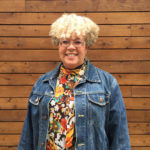 As the Skillpoint Alliance/Waco Program Coordinator, Dawn is responsible for coordinating and carrying out the activities for programming in the Waco region including: Classroom Management, Participant Coordination and Data Management. Prior to joining Skillpoint,Alliance, Dawn worked at Mission Waco as a Program Coordinator/Job Trainer/Job Developer for Waco Homeless population. She has previously worked as a Staff Respiratory Therapist, Respiratory Therapy Department Manager and Clinical Evaluator for Promise Hospital of Phoenix, Phoenix, Arizona and Clinical/Didactic Instructor for a Respiratory Therapy Program at Apollo College in Phoenix, Arizona. Dawn moved to Waco with her husband, Tom in 2011.
As the Skillpoint Alliance/Waco Program Coordinator, Dawn is responsible for coordinating and carrying out the activities for programming in the Waco region including: Classroom Management, Participant Coordination and Data Management. Prior to joining Skillpoint,Alliance, Dawn worked at Mission Waco as a Program Coordinator/Job Trainer/Job Developer for Waco Homeless population. She has previously worked as a Staff Respiratory Therapist, Respiratory Therapy Department Manager and Clinical Evaluator for Promise Hospital of Phoenix, Phoenix, Arizona and Clinical/Didactic Instructor for a Respiratory Therapy Program at Apollo College in Phoenix, Arizona. Dawn moved to Waco with her husband, Tom in 2011.
The Act Locally Waco blog publishes posts with a connection to these aspirations for Waco. If you are interested in writing for the Act Locally Waco Blog, please email [email protected] for more information.
By Holly Tate
“The most dangerous leadership myth is that leaders are born – that there is a genetic factor to leadership. This myth asserts that people simply either have certain charismatic qualities or not. That’s nonsense; in fact, the opposite is true. Leaders are made rather than born.” – Warren G. Bennis
Like most worthwhile things in life, becoming a good leader requires hard work, not just good genes. The more time we spend learning about and developing the characteristics of leaders, the greater our capacity to lead and serve others. Becoming a leader in Waco is all about taking our citizenship to the next level by becoming thoughtful, creative problem-solvers and visionaries for our communities. The LeadershipPlenty® Institute-Waco is one of the most impactful learning experiences available in our community for those who are interested in their personal leadership development and understanding of the diversity and complexity of Waco.
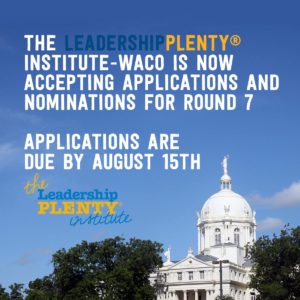 This FREE six-month program offers individuals the opportunity to develop and enhance leadership skills to become better leaders to work more effectively within their respective organizations and the greater community. When I participated in the program in 2015-2016, I loved getting to meet people from all different walks of Waco life and hear their perspectives and passions about the challenges facing our neighborhoods and organizations. I learned very quickly that there were not always neat and tidy solutions to addressing these complex and ambiguous challenges—and that’s ok! Through relevant readings, case discussions, introspective exercises, engaging speakers and panelists, group discussion, and networking opportunities, we all gained a broader understanding of leadership best practices, organizational culture and dynamics, and gained a deeper appreciation of our vibrant and changing community. While the topics we discussed were extremely relevant to Waco, they also challenged the way we approach national and global issues because they gave us a skill set that was so much bigger and more impactful than just a localized approach.
This FREE six-month program offers individuals the opportunity to develop and enhance leadership skills to become better leaders to work more effectively within their respective organizations and the greater community. When I participated in the program in 2015-2016, I loved getting to meet people from all different walks of Waco life and hear their perspectives and passions about the challenges facing our neighborhoods and organizations. I learned very quickly that there were not always neat and tidy solutions to addressing these complex and ambiguous challenges—and that’s ok! Through relevant readings, case discussions, introspective exercises, engaging speakers and panelists, group discussion, and networking opportunities, we all gained a broader understanding of leadership best practices, organizational culture and dynamics, and gained a deeper appreciation of our vibrant and changing community. While the topics we discussed were extremely relevant to Waco, they also challenged the way we approach national and global issues because they gave us a skill set that was so much bigger and more impactful than just a localized approach.
My friend, and fellow LeadershipPlenty graduate, Megan Pike really enjoyed and appreciated the module on Communicating for Change, which taught us about effective press releases and engaging the media. This was a really practical session that has helped her in her professional work as she consider rolling out new programs and how to best engage the media regarding these programs. But it was the final session, Facing the Challenge of Racism and Race Relations
That was most profound for her. “Watching a portion of RACE: The Power of an Illusion has totally rocked my world to the point of sending me on a pilgrimage to better understand our nation’s history around civil rights and race relations. I have been able to share this video series with a number of people with the hopes of spreading awareness and inspiring people towards acts of conciliation around race relations.”
When I think back on my LeadershipPlenty experience, I think of all of the ways that it has helped encourage me to use my skills and talents to engage with my community in new and creative ways. Being a part of LP has also connected me with a network of peers and mentors representing both for-profit and not-for-profit organizations, as well as community and school volunteers, retired individuals, people who are new to our community who are all passionate about our city, it’s capacity for awesomeness, and the active role each of us plays in making Waco wonderful for years to come.
If this sounds like something you’d like to experience for yourself, The LeadershipPlenty® Institute-Waco is now accepting applications for it’s 2017-2018 cohort! Apply by Tuesday, August 15th to be a part of this unique (& FREE!) opportunity
Visit www.todaysactiontomorrowsleaders.org to learn more. Questions? Contact Catherine Haynes Bauer, Director of Leadership Development and Engagement at Waco Foundation, at [email protected].
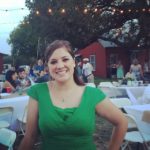 Holly Tate has called Waco home since 2009, and is a 2016 graduate of the LeadershipPlenty Institute-Waco. She is the Assistant Director for Missions at Baylor University—engaging faculty, staff, and students in opportunities to actively integrating their faith with service and learning all around the world. As a result of LP, she got connected to Act Locally Waco as a place to use her PR skills, and now volunteers behind the scenes for Act Locally Waco as our social media guru.
Holly Tate has called Waco home since 2009, and is a 2016 graduate of the LeadershipPlenty Institute-Waco. She is the Assistant Director for Missions at Baylor University—engaging faculty, staff, and students in opportunities to actively integrating their faith with service and learning all around the world. As a result of LP, she got connected to Act Locally Waco as a place to use her PR skills, and now volunteers behind the scenes for Act Locally Waco as our social media guru.
The Act Locally Waco blog publishes posts with a connection to these aspirations for Waco. If you are interested in writing for the Act Locally Waco Blog, please email [email protected] for more information.
By Mary Duty
The morning I read was just like the good old days of teaching. Up at 5:30, out the door by 7, I was on my way to the guest reader at the Children’s Defense Fund Freedom School at Baylor University. The school was held at Cesar Chavez Middle School (CCMS) . Dr. Lakia Scott invited me to read. She worked with student reading programs at CCMS for a couple of years. She began to develop a vision for a comprehensive summer reading program, and the Freedom School filled that bill.
CDF Freedom School is a program that develops literacy, civic engagement, and advocacy training. Based on a similar program from the days of the Civil Rights Movement, these schools develop a curriculum that involves active reading and researching on a topic of interest and then helps students develop a response to their research.
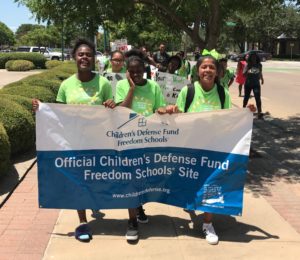 Every year at Freedom School there is a day set aside for a social action project. Last year it was studying, researching and conducting voter registration drives. This year’s theme for the National Day of Social Action was Child Hunger. Students began to read about and research the problem of child hunger around the world, in the United States and locally. Guest speakers came to talk to the scholars about child hunger. From there students were encouraged to write speeches and letters and discuss ways to help solve the problem. With the help of their teachers, they organized a March and a Rally in downtown Waco, complete with a trip to City Hall to visit with elected officials. I could not wait to meet these young scholars.
Every year at Freedom School there is a day set aside for a social action project. Last year it was studying, researching and conducting voter registration drives. This year’s theme for the National Day of Social Action was Child Hunger. Students began to read about and research the problem of child hunger around the world, in the United States and locally. Guest speakers came to talk to the scholars about child hunger. From there students were encouraged to write speeches and letters and discuss ways to help solve the problem. With the help of their teachers, they organized a March and a Rally in downtown Waco, complete with a trip to City Hall to visit with elected officials. I could not wait to meet these young scholars.
I was brought to the gym. The kids came in and gathered around. And then magic filled that space. The overly loud PA system began to play the Quincy Jones version of the Hallelujah Chorus. The kids didn’t mind. They began to move around the room and sing and sway to the music. Teachers joined in. What a way to start the day! This is how every day started at Freedom School. They also engaged in a few minutes of “recognition” time where scholars and teachers call out people for good work or good deeds from the day before. Guest Readers, joyful music and an attitude of gratitude set the mood.
As the music faded away the scholars sat in a semicircle and waited for me to read. I read a book about the childhood of John Lewis. They had just finished reading Lewis’s book, March.
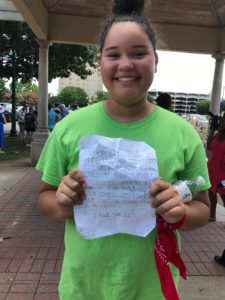 After reading the book and answering questions the students went to their classrooms to read and work on writing and poster making. The day I read was the day of the big march downtown. We went from room to room with a member of the staff and what I saw was nothing short of spectacular. Large colorful posters and banners littered the floor. Speeches were on the tables, ready for their last revision. The excitement about showing their work was evident in every room. One teacher had worked with the students on their silent demonstration that showed the number of children that go hungry at night. One young man told me of how the body that has not been fed reacts to school the next day. Concentration suffers. Kids don’t master new ideas. Schoolwork suffers. He was serious. Every kid deserves a chance, he said.
After reading the book and answering questions the students went to their classrooms to read and work on writing and poster making. The day I read was the day of the big march downtown. We went from room to room with a member of the staff and what I saw was nothing short of spectacular. Large colorful posters and banners littered the floor. Speeches were on the tables, ready for their last revision. The excitement about showing their work was evident in every room. One teacher had worked with the students on their silent demonstration that showed the number of children that go hungry at night. One young man told me of how the body that has not been fed reacts to school the next day. Concentration suffers. Kids don’t master new ideas. Schoolwork suffers. He was serious. Every kid deserves a chance, he said.
 At about 2 p.m. I drove to Heritage Square. The kids marched. They carried their posters. They were blessed by Virgil, Waco’s praying man. After about 30 minutes in the hot summer sun, they gathered in the shade of the arbors at Heritage Square. Townspeople came. Baylor students showed up. Parents of kids were in the crowd. The students made speeches and at the end they explained what their plates represented. The young man that told me about how kid’s minds don’t work well when they are hungry finished his speech with a plea to the crowd. “We all can help.”…..and looking out over the grownups he added “You could give money.” He had grown to understand that if the programs that kids rely on for food are in the federal budget cuts, then we must look to our community…our civic organizations and churches to pick up the slack. Everyone smiled and nodded when he finished. Then, row by row, in complete silence they filed by and dropped their empty plates in a trash can. Symbolic of the number of kids that go without, they made a powerful statement with a peaceful and gentle voice.
At about 2 p.m. I drove to Heritage Square. The kids marched. They carried their posters. They were blessed by Virgil, Waco’s praying man. After about 30 minutes in the hot summer sun, they gathered in the shade of the arbors at Heritage Square. Townspeople came. Baylor students showed up. Parents of kids were in the crowd. The students made speeches and at the end they explained what their plates represented. The young man that told me about how kid’s minds don’t work well when they are hungry finished his speech with a plea to the crowd. “We all can help.”…..and looking out over the grownups he added “You could give money.” He had grown to understand that if the programs that kids rely on for food are in the federal budget cuts, then we must look to our community…our civic organizations and churches to pick up the slack. Everyone smiled and nodded when he finished. Then, row by row, in complete silence they filed by and dropped their empty plates in a trash can. Symbolic of the number of kids that go without, they made a powerful statement with a peaceful and gentle voice.
 As quickly as it began, it was over. They gathered their water bottles scoured the area for trash and loaded on the bus to go back to Cesar Chavez. I walked away transformed by what I witnessed. In education jargon, it is called “integrated, thematic learning.” This was that kind of learning at its best. At the March and Rally, kids showed off their knowledge of science, history, and mathematics. They did it with reading, writing and speaking skills. And their work held deep meaning to them. Their attitude toward their fellow man, their view of themselves and their place in the world will be forever changed for the better.
As quickly as it began, it was over. They gathered their water bottles scoured the area for trash and loaded on the bus to go back to Cesar Chavez. I walked away transformed by what I witnessed. In education jargon, it is called “integrated, thematic learning.” This was that kind of learning at its best. At the March and Rally, kids showed off their knowledge of science, history, and mathematics. They did it with reading, writing and speaking skills. And their work held deep meaning to them. Their attitude toward their fellow man, their view of themselves and their place in the world will be forever changed for the better.
The CDF Freedom School at Baylor held a grand “Finale” program on their last day of school. The crowd was full of proud parents and friends. Dr. Marcus Nelson represented WISD. It was a celebration of what was done at this year’s Freedom School. Scholars danced and sang. They performed a play based on the story of the eagles that thought they were chickens.
At the close there was a final “recognition” time. One student from each class came forward to read a note to their teacher. The first young man made it through about three lines of his prepared remarks and then the tears began to flow. He was overcome with his feelings about what this Freedom School meant to him. Every child that followed let the tears flow. The recognitions were raw and real and cut to the heart of what good teaching is. Finally, as they danced their final dance, this next generation of politicians, doctors, lawyers, teachers and citizens let it all go. Through their tears and laughter and promises, this first class of Freedom School graduates go forward to change the world. Thanks to this powerful Baylor/Waco ISD partnership, these scholars found their voice.
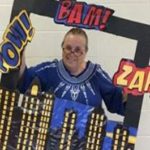 Mary Duty is a long time Waco educator and business owner. She is a chronic volunteer and seeker of truth and justice. The Chair of Mclennan County Democratic Party, Mary is the mother of 5 incredible Wacoans and grandmother to 7 adorable grandkids. She is the wife and soulmate of Waco businessman, Roland Duty.
Mary Duty is a long time Waco educator and business owner. She is a chronic volunteer and seeker of truth and justice. The Chair of Mclennan County Democratic Party, Mary is the mother of 5 incredible Wacoans and grandmother to 7 adorable grandkids. She is the wife and soulmate of Waco businessman, Roland Duty.
By Christina Helmick
If you lived in Waco in 2014, then you might have heard about the Upjohn Economic Development Study. If you didn’t live in Waco then (or didn’t hear about it), the City of Waco commissioned this study to identify the components of an economic development strategy that could concurrently enhance the local economic base and provide a sustainable pathway for economically-disadvantaged Waco residents toward full-time, permanent employment. You can find this data-driven report by clicking here!
During the summer of 2015, Ashley Bean Thornton wrote a blog post about a local event that focused on hiring individuals who were returning to society from incarceration. The blog caught the eye of a manager, Robert Saucedo, of a company called Reinforced Earth Company, RECO. Ashley and Robert started a conversation about how hiring needs and the community “support system” for job seekers. This conversation led to Ashley facilitating a group known as the Waco Foundational Employment Network for about a year and a half. The Network discussed referrals between social service agencies, talked to local employers about their hiring needs, and discussed how organizations can work together to better support job seekers to not only find jobs, but keep jobs.
As the Network continued to meet, local employers were drawn to participate due to the concept of having one point of contact for them to call if an employee (who was referred by the Network) needed some type of support, such as housing, transportation or childcare. Through the various conversations and increased interest by the business sector, the Waco Foundational Employment Network evolved into the Waco Employer Resource Network (WERN). This Network follows the model identified in the Upjohn study previously mentioned.
The Waco Employer Resource Network received funding from City of Waco’s Budget and Audit Committee in July of this year to fund a three-year pilot WERN program. This funding allows for two full-time positions to implement the work of the network. Caritas of Waco has hired a Success Coach who will work directly with employed individuals to provide the supports necessary to help them maintain employment. HOT Goodwill will employ a Liaison whose role will be to facilitate the network and serve as a single point of contact for employers seeking to partner with community agencies to hire job seekers and/or refer employees to resources. Goodwill is still conducting interviews for this position with the goal to train WERN staff during August and launch the WERN pilot project mid-September.
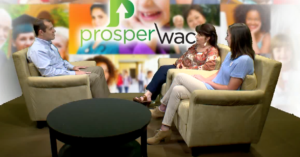 To learn more about the Network, watch this month’s Prosper Waco episode on the City Cable Channel.
To learn more about the Network, watch this month’s Prosper Waco episode on the City Cable Channel.
As this pilot program kicks off in September, there is still room for local employers and those seeking employment to jump on the WERN train! Reach out to Tiffany Fry for more information by sending an email to [email protected].
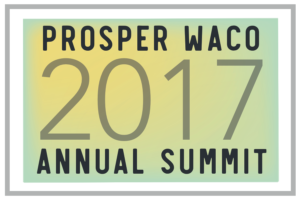 These are the type of innovative, collaborative approaches that are working to advance the goals of the Prosper Waco initiative. A big community-wide THANK YOU goes to Caritas of Waco and HOT Goodwill for being the lead agencies of WERN. If you want to learn more about WERN and other collaborative approaches community organizations are leading to improve Waco, make sure to attend the #Summit17 happening on Thursday, October 12 at the Waco Convention Center!
These are the type of innovative, collaborative approaches that are working to advance the goals of the Prosper Waco initiative. A big community-wide THANK YOU goes to Caritas of Waco and HOT Goodwill for being the lead agencies of WERN. If you want to learn more about WERN and other collaborative approaches community organizations are leading to improve Waco, make sure to attend the #Summit17 happening on Thursday, October 12 at the Waco Convention Center!
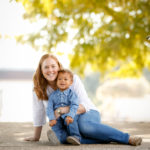 Christina Helmick is the director of communication at Prosper Waco. She is a recent graduate of Baylor University with a BA in Journalism, Public Relations & New Media. Originally she is from Washington, D.C., but has stayed in Waco post-graduation. She is an active mentor at J.H. Hines Elementary School, enjoys spending time with her family and watching Baylor football. Sic ’em Bears!
Christina Helmick is the director of communication at Prosper Waco. She is a recent graduate of Baylor University with a BA in Journalism, Public Relations & New Media. Originally she is from Washington, D.C., but has stayed in Waco post-graduation. She is an active mentor at J.H. Hines Elementary School, enjoys spending time with her family and watching Baylor football. Sic ’em Bears!
The Act Locally Waco blog publishes posts with a connection to these aspirations for Waco. If you are interested in writing for the Act Locally Waco Blog, please email [email protected] for more information.
By Caitlin Giddens
If the Waco 52 Pop-Up Gallery isn’t on your summer bucket list, you’re missing out. This inspiring pop-up gallery, hosted by Creative Waco, will feature local art, live music, farm-to-table dinners, weekend yoga classes and more.
The pop-up gallery is not a new concept, but it’s new to Waco’s Cultural Arts District. This short-term gallery, lasting from August 3 to September 2 at 712 Austin Avenue, will bring together visual artists, performers and more to showcase Waco’s creative potential.
The gallery space will feature 52 pieces, all created by local artists, that depict Waco and McLennan County. Next to the gallery, you’ll find a retail area, offering framed prints and locally handmade items, and Luna Juice Café. The pop-up events calendar includes a Gospel Brunch, a calligraphy class, art classes and even poetry and philosophy events.
Creative Waco is also offering Mini Residencies lasting one to four weeks for visual artists. All Artists in Residence are invited to participate in a weekly “Happy Hour Review” of work in progress each Thursday at 5 pm. Creative Waco hopes this will be a wonderful opportunity to build community among artists, receive valuable feedback on work and connect with buyers and art lovers from Waco and beyond.
The Waco 52 Pop-Up Gallery isn’t just an art collection — it’s a gathering place for creatives and an evening hangout spot. It’s an example of redeeming hope and forging community. To see a calendar of events at the Waco 52 Pop-Up Gallery, visit www.creativewaco.org/waco52/. If you’re interested in hosting an event at the gallery, email [email protected].
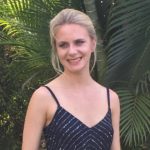 Caitlin Giddens is a local English teacher and writer. She graduated from Baylor University’s Honors College in 2013. When she’s not teaching or writing, she enjoys leading yoga and barre classes at Yoga Pod Waco.
Caitlin Giddens is a local English teacher and writer. She graduated from Baylor University’s Honors College in 2013. When she’s not teaching or writing, she enjoys leading yoga and barre classes at Yoga Pod Waco.
by Candice Kelm and Madiha Kark
Corporations have been flocking to Texas for its business-friendly environment, location, and community, which is evident by the booming economy in Waco and the surrounding areas. These new businesses and growing corporations have created a demand for skilled workers willing to take initiative and learn new ways to handle and manage a changing workforce. MCC’s Corporate Training program can help employers equip their employees with the essential tools needed to succeed and take businesses and individual’s careers to the next level while revolutionizing the workforce into indispensable parts of an organization.
Through customized training and a wide range of highly interactive online courses, MCC’s Corporate Training Department can design a program based on the training needs and objectives of a business or organization. Classes may take place on the MCC campus or on-site at an employer’s location.
A broad variety of topics can be tailored to the best skills development and training program for any business:
- Industrial & Technical Training
- Leadership/Supervisor Training
- Computer Applications
- Communications
- Teamwork
- Workplace Spanish
- Customer Service
- Sales & Marketing
- Quality Improvement Management
- Project Management
- Workplace Safety
- Healthcare
MCC’s Corporate Training program partners with many local businesses to request Skills Development Funds, training grant funding from the Texas Workforce Commission (TWC). MCC has been awarded more than $12 million in grant funds to enhance the skills of several local companies’ current workforce and new employees. Most recently, the program received a $688,760 grant to train 781 new and incumbent employees in a manufacturing consortium comprised of Aramark, Marathon-Norco, Trane, and Vossloh Fastening Systems.
To learn more about MCC’s Corporate Training and how they can help your organization, visit www.mclennan.edu/cortraining or contact the program coordinators: John Hutchens at 299-8156 or [email protected], or Steven Wenzel at [email protected].
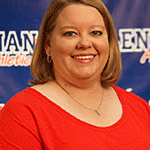 Waco native Candice Kelm has served as the Sports Information Specialist for MCC Athletics since 2006 and lends a hand as a writer to the Marketing and Communications department. She received her bachelor’s degree in education with an emphasis in journalism and business from Baylor University in 2002.
Waco native Candice Kelm has served as the Sports Information Specialist for MCC Athletics since 2006 and lends a hand as a writer to the Marketing and Communications department. She received her bachelor’s degree in education with an emphasis in journalism and business from Baylor University in 2002.
By: Clint Weaver, United Way of Waco-McLennan County Board President & 2016 Campaign Chair
Last year, I had the privilege to serve as the United Way Waco-McLennan County Campaign Chair. Currently, I serve as the agency’s Board President. Like so many others, I support our local United Way because of a fundamental belief in the organization’s unique ability to meaningfully impact the most pressing issues facing our community. Consider several statistics that illustrate our challenge.
- 26.5% of McLennan County children live below the Federal Poverty Line
- 24.5% of McLennan County individuals are un-insured
- 19.8% of McLennan County individuals are food insecure
- 49.2 of every 1,000 teens in McLennan County become pregnant
- 478.3 of every 1,000 individuals in McLennan County experience domestic violence
*Source: U.S. Census Bureau
Our local United Way seeks to address these issues and others by harnessing the power of the community one donor at a time. Historically, this has been accomplished through workplace campaigns. Each year, thousands of workplace donors across our community answer the call to help their neighbor. These women and men, by generously giving a portion of each paycheck, are the life-blood of the annual United Way campaign. Last year, workplace donors enabled our local United Way to contribute nearly $2,000,000 toward programs accomplishing the following:
- 20,549 low-income McLennan County children received access to Early Childhood Education Classes, and quality afterschool and summer school programs.
- 33,753 low to un-insured families and individuals in McLennan County received access to medical pre-screenings, health exams, prescription assistance, and physical, emotional, and mental therapy.
- 150,498 meals and bags of groceries were provided to children, families, and individuals in McLennan County living below the Federal Poverty Line.
- 4,602 low-income pregnant girls and women in McLennan County received access to prenatal care, resource assistance and post-pregnancy parenting classes.
- 22,344 families and individuals experiencing family crisis and domestic violence received access to shelter, resources, counseling, and case management.
Last year, over 41,000 McLennan County families benefited from United Way funded programs. As evidenced by these statistics, a gift from one individual, when pooled with donations from co-workers and neighbors, has the ability to positively impact thousands of lives. This is the purpose of the United Way: to unite multiple individual donors and leverage their collective resources to generate lasting impact in the community. Generations have been made stronger, more self-sufficient, and have risen above poverty’s limitations because of the collective might of work place donors.
For nearly 90 years, United Way of Waco-McLennan County has focused on strengthening our community and creating opportunity for every citizen through inspired and informed philanthropy. All too often, people equate philanthropy with great wealth and large donations. My experience with last year’s campaign opened my eyes to the main street philanthropy that occurs around us each day. Without public recognition or fanfare, work place donors continually, year-after-year, provide the resources needed to support their neighbors in need. These are the philanthropists who empower our work and truly exemplify what it means to live united. I am humbled by their steadfast belief in our mission. On behalf of the United Way of Waco-McLennan County board and staff, our United Way funded agencies, and the thousands of lives positively impacted each year, I say thank you to these amazing women and men for the difference they make in our community. I am #ProudToLIVEUNITED.
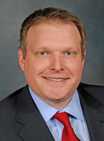 A financial advisor since 2006, Clint joined Stifel in 2014. Clint makes it a priority to place his clients’ interests first and use his knowledge and experience to continually adapt to their rapidly changing industry. Clint’s community involvement includes serving on the Executive Board and Foundation Board for the United Way and on the boards of the Heart O’ Texas Fair and Rodeo and the REACH Therapeutic Riding Center. He is a member of the First Baptist Church of Waco and is active in the Baylor Bear Foundation. Clint and his wife, Casie, have two children: Jack and Tessa.
A financial advisor since 2006, Clint joined Stifel in 2014. Clint makes it a priority to place his clients’ interests first and use his knowledge and experience to continually adapt to their rapidly changing industry. Clint’s community involvement includes serving on the Executive Board and Foundation Board for the United Way and on the boards of the Heart O’ Texas Fair and Rodeo and the REACH Therapeutic Riding Center. He is a member of the First Baptist Church of Waco and is active in the Baylor Bear Foundation. Clint and his wife, Casie, have two children: Jack and Tessa.
By Dasjaevian Dixon
Searching for a job or an internship can be a tedious process. But researching and making genuine connections can help to ease that process. Last year, I utilized Eagle Network as a vital resource to find the Disney College Program internship, which is available for all students at the University of North Texas.
Eagle Network is an excellent resource for finding jobs, internships, and shadowing opportunities. After I found out about the Disney College Program, I researched the company and what it has to offer – not only to potential employees but for the millions of guests from all over the world who visit Walt Disney World annually. My excitement began once I learned that Disney was a Fortune 500 company that places great emphasis on guest satisfaction and opens doors for its interns’ occupational growth. After reading these descriptions, I knew the company would be a great fit for me.
I followed up with Disney’s recruitment team after applying to make sure an interview was secured. The interview lasted about 20 minutes. I was excited about the big break afterwards, but nervous regarding what to expect. After the over-the-phone interview, I sent a follow-up email expressing how thankful I was to even have the chance to be interviewed by a Disney recruiter.
I highly encourage all students to take advantage of resources offered from your school. Every interview will not be great. Every job you apply for will not be handed to you. However, you must stay persistent. Keep putting forth an effort to build and gain employment skills that will be vital to your eventual career of choice.
A great tool I would recommend in helping your job/internship search is LinkedIn. This unique social network for employers can mark the difference between an overlooked candidate and potential hire. I recommend using LinkedIn to reach out to as many professionals as possible.
My internship was a great learning experience overall, as well as a lot of fun. At the same time, I began it with several challenges – some of which came from simply adjusting to it. But that’s a part of every process, right?
It was difficult adjusting financially and physically when I arrived in Orlando, Florida, in April. It was also challenging to maintain a new schedule. Plus, I only had $300 dollars to my name. I had to use Uber numerous times to get around until I found someone who could provide transportation. Although most of my destinations were nearby, the money I spent on Uber accumulated quickly.
My normal routine consisted of attending classes, working, exercising, and socializing. That didn’t work out so well for the first 6 weeks of the internship. Before I knew it, I was working about 45 hours a week while taking 2 online classes through UNT. I couldn’t work out or socialize as much as I wanted to.
Working 6 days a week for about 2 months made me embrace time management more than I ever have. As much as it made me find a balance, it motivated me to improve my health to endure the long work days. I started cooking breakfast every morning and taking vitamins which helped tremendously. In return, I could get through the week without being so fatigued.
One thing I really looked forward to was volunteering alongside the Make-A-Wish Foundation as a wish granter. I knew Disney had a close partnership with the foundation, and I wanted to utilize that as a way to give back to the community.
Before passing away in July of 2007, my younger sister made a wish to attend a Ne-Yo concert while recovering from our bone marrow transplant. Her immune system was not strong enough for traveling, so Make-A-Wish made a way for her to attend a WWE event in San Antonio, Texas instead. She had the time of her life meeting some of her favorite wrestlers – especially her favorite, John Cena. He currently grants many wishes for children with life-threatening medical conditions.
I had my own chances to help grant wishes for 2 children in the Orlando area – in May and June respectively. Both of the families I interacted with were genuinely happy that their child would do something fun to aid them through challenging turmoil. Fortunately, I left both families’ homes feeling like I was a part of their units. It has been a wonderful experience being a part of the world’s largest wish granting organization. I look forward to continuing to serve in the North Texas region.
I’ve developed genuine relationships with people worldwide. Interacting and learning about different cultures with the international students I worked with was a blast. It strengthened my comprehension of how to communicate and made me eager to visit different countries.
At work, I was able to network with many people from different backgrounds. I did my best in making sure that guests felt comfortable and welcomed whenever they visited our store. I had the opportunity to engage in meaningful conversations that I will remember for the rest of my life. Throughout my internship, I interacted with thousands of guests and I am now more comfortable when speaking to large audiences or individuals that I’m meeting for the first time.
As a young professional, I’ve sharpened valuable skills which make me an important asset in the business field. Some of those skills include being personable, practicing effective communication, identifying problems, and providing ample solutions. Now, I can find a perfect balance between hard work and participating in extracurricular activities.
Most importantly, I still enjoyed the recreational activities Walt Disney World offered. On my off days, I visited theme parks and traveled around Florida. Being in this enlightening atmosphere every day has inspired me to continue working hard and enjoying the treasures of life. I am beyond thankful for this opportunity and experience. Thank you and best regards to everyone who continues supporting and encouraging me on this formative professional journey.
 Dasjaevian Dixon is an undergraduate student at the University of North Texas studying Marketing with a double minor in Decision Sciences and Psychology. He is currently interning at Walt Disney World in Orlando, Florida. Dasjaevian is a Brazos Education Foundation scholar. He currently serves as the Vice President for The Presidential Men, an organization he helped implement at UNT. He also assists with helping grant the wishes of children with life-threatening medical conditions for the Make-A-Wish Foundation. Owning his own business in the future is one of his top goals. As a millennial, he is building on his personal and professional skills to become a valuable asset in the business field.
Dasjaevian Dixon is an undergraduate student at the University of North Texas studying Marketing with a double minor in Decision Sciences and Psychology. He is currently interning at Walt Disney World in Orlando, Florida. Dasjaevian is a Brazos Education Foundation scholar. He currently serves as the Vice President for The Presidential Men, an organization he helped implement at UNT. He also assists with helping grant the wishes of children with life-threatening medical conditions for the Make-A-Wish Foundation. Owning his own business in the future is one of his top goals. As a millennial, he is building on his personal and professional skills to become a valuable asset in the business field.
The Act Locally Waco blog publishes posts with a connection to these aspirations for Waco. If you are interested in writing for the Act Locally Waco Blog, please email [email protected] for more information.
by Carrie Arroyo
Summer is my time to relax, eat too much ice cream, run through the sprinkler in the front yard with my kids, and watch the hummingbirds eat from our Turk’s Cap off the front porch. But because I work on a school calendar schedule and have 3 youngsters who will all be in school this fall, it is impossible to escape the inevitable hanging over our heads: school is only 1 month away! Sorry to bring it up and crush your dreams of endless fire fly chasing at dusk, but I do have some suggestions that will help ease the transition back in to school and contribute to a successful school year for kids, families, and teachers alike.
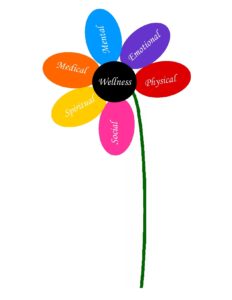 We would love to silo academic success as only being influenced by the amount of study time, quality of textbooks and teaching skills, and intellectual capacity. But the reality is that it is also directly influenced by our physical, mental, and social well-being. Our mental wellness is a key component to achieving academically. Wellness requires the active pursuit of health instead of treatment of illness. When we build wellness practices in to our lives, we are building up our reservoir of mental resources so that when stressful and challenging times hit, we have an ample supply of mental energy and flexibility to withstand added demands. Mental wellness also helps us to flourish in our daily lives. And if we want our children to succeed and flourish in school, there are few things we can do to help them pursue mental wellness. (flower)
We would love to silo academic success as only being influenced by the amount of study time, quality of textbooks and teaching skills, and intellectual capacity. But the reality is that it is also directly influenced by our physical, mental, and social well-being. Our mental wellness is a key component to achieving academically. Wellness requires the active pursuit of health instead of treatment of illness. When we build wellness practices in to our lives, we are building up our reservoir of mental resources so that when stressful and challenging times hit, we have an ample supply of mental energy and flexibility to withstand added demands. Mental wellness also helps us to flourish in our daily lives. And if we want our children to succeed and flourish in school, there are few things we can do to help them pursue mental wellness. (flower)
5 Tips for Increasing Mental Wellness at School
1. Focus on learning over perfection. My 9-year-old is wired in such a way that he hates to try something new unless he is 100% sure he is going to be able to master it quickly. One of the first times this became obvious was when he was learning to tie his shoes when he was 4. In an effort to get him to persist in this new and challenging task, we mandated mistake-making. He was required to make at least 5 mistakes and we celebrated wildly with claps, cheers, and dance parties every time he messed up. This made him laugh and loosen up and be willing to keep trying (and keep messing up) until he mastered the task. The focus in school performance too easily becomes the grade that comes home on the paper or report card. Instead of rewarding or punishing the grade, focus on rewarding and reinforcing the learning. We need to cultivate this culture and build in an expectation of curiosity and experimentation that feeds creativity. Kids need to know that they are safe to make mistakes and that the classroom and their families will still accept them and appreciate them for what they bring to the learning process.
2. Connection, Belonging and Trust. As much as teachers would like to think it’s true, very few students wake up excited to go to school in order to learn a new algebra equation. When I ask my kids about their most memorable moments of the school day, they usually center around an interpersonal interaction. Whether it was a game they played on the playground with friends or a hug they received from their teacher, they feel energized by points of connection throughout the day. These moments of attention to who they are as individuals and appreciation of their presence, are little deposits in to the mental wellness bank. And when they are feeling positive about themselves and their school environment, their ability to learn that new math fact increases exponentially.
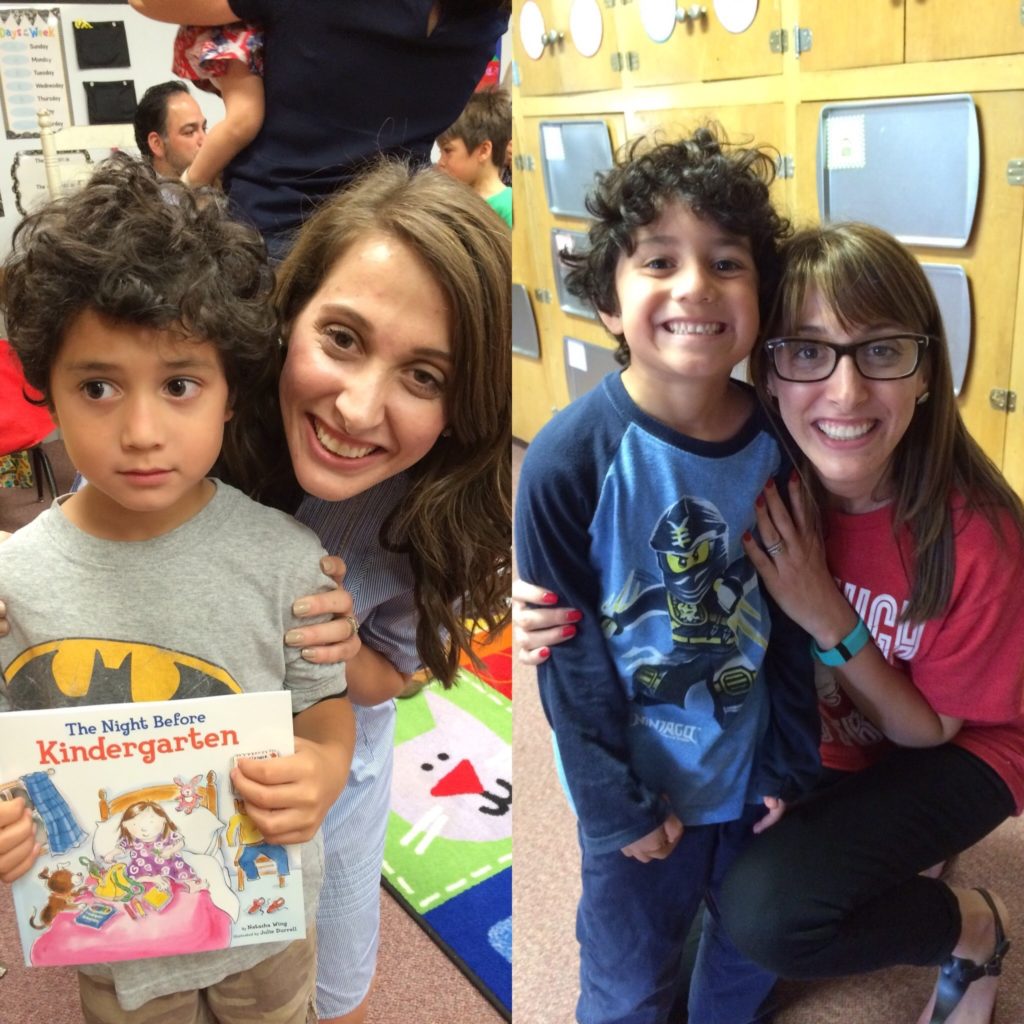
Picture of my son Ezekiel and his Kindergarten teacher Mrs. Draper on the first (left) and last (right) day of school in 1st grade. From fear and apprehension, to love, acceptance, and success!
3. Be Proactive and Limit Surprises. I love a good surprise. One of my biggest pet peeves is someone telling me the ending of a book or movie before I have had the chance to experience it myself. However, there are some situations where limiting surprises can help our minds, hearts, and spirits to thrive; and school is one of these situations. For families, be proactive and visit your child’s school ahead of time: meet key people, find the cafeteria and bathrooms, walk your class schedule before bells are ringing and other people are bumping in to you. For schools, minimize complications for families and students: have clear signs and make sure procedures are easy to find and follow. Streamline things as much as possible. Clear and consistent communication helps to clear up a multitude of misunderstandings and can make the school environment much more inviting to students and families. So caregivers, don’t stop surprising kids with unexpected notes of encouragement in their lunch boxes such as “Good luck on your science test” or “I hope you have a great day” and teachers, don’t stop giving the surprise gift of dropping the lowest test grade at the end of the grading period, but also make sure you give plenty of information and guidance up front to demystify the experience.
4. Routine helps children’s brains navigate the world. As they experience new things, their brains sort the information, assimilate it in to their thinking process, and adapt and grow as they learn new things. Providing structure to a child’s day helps them to thrive. This starts at home before they come to school with adequate sleep, a good morning greeting, and a hug before they walk out the door. Building in routines that give attention to physical needs is also directly tied to mental wellness. Kids need to eat well, be sufficiently hydrated, and get some exercise. Moving the body can do wonders for opening up the mind and being ready to learn. Building brain breaks in to the routine keeps the mind flexible and responsive to the learning environment.
5. Focus on what works. The ‘power of positive thinking’ is not just an old phrase; it is actually helpful to build up our mental wellness. Our brains tend to repeat the things that we focus on the most. If we are constantly focusing on what a child has done wrong and giving attention to it, it is actually more likely to increase. Telling kids what we want to see and encouraging positive behaviors increases the likelihood of positive behavior and habits. When something goes wrong, offer the child the opportunity to redo a mistake. I know this can be hard for those of us who grew up thinking the best way to train a child is to be hard and strict with more of a “get it right the first time or else” approach. But what we know from research is that we remember what we do – whether that is doing it wrong or right. Take the time to give a child the opportunity to redo an action they originally got wrong so that their motor memory can store the right way to do it. It will increase the likelihood that they will get it right the next time. Yes, it takes time, but is time well spent. And at the end of it, the adult and child are both celebrating a success rather than fuming over a mistake. This builds a more connected and collaborative relationship by increasing positive thoughts and feelings.
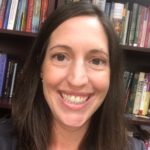 Carrie Arroyo works hard as a Lecturer in the Diana R. Garland School of Social Work at Baylor University where she teaches soon-to-be social workers and coordinates the BEAR (Be Emotionally Aware and Responsive) Project with Waco ISD. She also plays hard as a mom of 3 energetic kids: Jonas (9), Ezekiel (7) and Eden (4) and wife to Fernando in their North Waco neighborhood.
Carrie Arroyo works hard as a Lecturer in the Diana R. Garland School of Social Work at Baylor University where she teaches soon-to-be social workers and coordinates the BEAR (Be Emotionally Aware and Responsive) Project with Waco ISD. She also plays hard as a mom of 3 energetic kids: Jonas (9), Ezekiel (7) and Eden (4) and wife to Fernando in their North Waco neighborhood.
